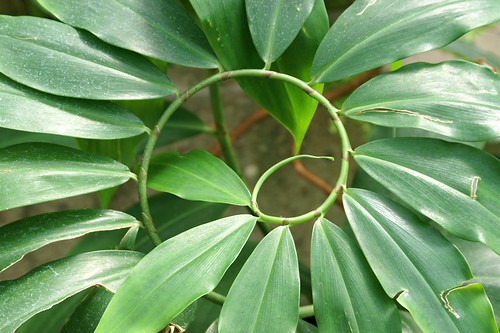- Published by: *New Science Magazine*
- 19:00 01 May 2008 by Andy Coghlan
- For similar stories, visit the Mysteries of the Deep Sea Topic Guide
"Dead zones" containing too little oxygen for fish to breathe are growing as global temperatures increase.
Warmer water dissolves less oxygen, so as temperatures rise, oxygen vanishes from oceans. Marine biologists are warning that if dead zones continue expanding, oceanic "deserts" could massively deplete marine life and fish stocks.
Previous studies have shown that surface layers of the ocean can be depleted of oxygen by pollution draining out from rivers, as in the Gulf of Mexico. However the new study finds depletion at intermediate ocean depths, between 300 and 700 metres. There has also been evidence of oxygen depletion closer to the sea bed in some regions, such as the Arabian Sea, but no one has looked before in detail at intermediate depths.
"From our observations we can only tell what happened in the past 50 years, but we need to find out what will happen in the future," says Lothar Stramma of the University of Kiel, Germany.
Oxygen shortfall
Stramma's team used data from historical records of oceanic oxygen concentrations, collected mainly from research vessels. They combined it with recent data from buoys newly equipped to measure oxygen concentrations, as well as temperature and salinity. "We added our own data from recent cruises and floats where available to continue the older data set to the present," says Stramma.
The combined data set shows that, over the past 50 years, large volumes of ocean previously rich in oxygen have become "oxygen minimum zones" (OMZs) containing less than 120 micromoles of oxygen per kilogram of water. These are the concentrations at which fish, squid, crustaceans and other marine creatures begin to suffocate and die.
On average, the team calculate that oxygen dropped by between 0.90 and 0.34 micromoles per kilogram of ocean per year.
Worst affected of six areas sampled was a tropical region of the Atlantic Ocean to the west of Africa. Between 1960 and 2006, the layer with less than 90 micromoles of oxygen per kilogram of ocean grew dramatically - its vertical thickness increased by 85%, from 370 to 690 metres. The other region of particular concern was in the equatorial Pacific Ocean.
Andy Gooday of the UK's National Oceanography Centre in Southampton says that oxygen-deprived zones caused through pollution from human activity - such as those in the Gulf of Mexico or off the coast of Louisiana - are serious, but they're dwarfed in size by the OMZs in the current study. "They're far larger, and so could have a bigger impact if they expanded," he says.
But the ultimate impact and cause of the growing deserts is difficult to gauge, say the researchers.
Breathless waves
Oxygen is delivered to intermediate levels by surface waters which carry more oxygen, and sink through being colder and denser. Since warm water carries less oxygen and sinks less through being lighter, climate change, which has been blamed for increases in sea surface temperatures, could possibly account for the growing OMZs, says Greg Johnson, a co-author at the US National Oceanic and Atmospheric Administration's Marine Environmental Laboratory in Seattle.
Gooday stresses that OMZs are a natural phenomenon, and have fluctuated in volume throughout history. They are influenced by natural climatic phenomena such as the cyclical El Niño weather patterns that whip up ocean currents every decade or so. Stramma's team acknowledge this, and point out that oxygen-depleted oceans driven by high levels of atmospheric carbon dioxide were to blame for huge Permian extinctions of marine creatures 250 million years ago.
The big questions are whether global warming is making the deserts larger today, and how this affects marine life.
Gooday, who has studied how low-oxygen conditions affect marine life at the sea bed, says that mobile creatures can cope best, because they can move elsewhere.
Oxygen-poor water tends to become rich in the organic matter of dead organisms, as there's less oxygen available to aid decay. This provides food for fish, although they take risks accessing it because of the lack of oxygen to breathe.
"They can swim in and feed and swim out again, figuratively 'holding their breath' till they get out," says Gooday. This explains why marine creatures tend to live at the upper and lower limits of the OMZs, where they can "dip in and dip out", he says.
Journal reference: Science, DOI: 10.1126/science.1153847
Mysteries of the Deep Sea -The deep sea is one of the harshest habitats on Earth, but is home to many remarkable creatures. Learn more in our comprehensive special report.
Climate Change - Want to know more about global warming: the science, impacts and political debate? Visit our continually updated special report.
Endangered species - Learn more about the conservation battle in our comprehensive special report.
If you would like to reuse any content from New Scientist, either in print or online, pleasecontact the syndication department first for permission. New Scientist does not own rights to photos, but there are a variety of licensing options available for use of articles and graphics we own the copyright to.
Have your say
For Land Animals, All Water Is Omz
Thu May 01 19:46:58 BST 2008 by Dmm
For land animals, all water is OMZ. That doesn't stop many of them (incl. Humans) from holding their breath in order to access the food resources there. For fish, all land is OMZ. That doesn't stop many of them from feeding at the water/air interface, or even crossing land on their fins.
We don't know enough about this phenomenon to say that it is being caused by global warming. It could be caused by movements of fertilizer-induced dead zones. Or it could be a completely natural cycle that we simply didn't notice before. There's not enough data.
Every Change Is Caused By Global Warming
Thu May 01 20:20:58 BST 2008 by Andrew
Dmm, you must not of read the memo.... Everything that is changing is caused by Global warming, nothing else can be the cause. There is no money to blame fertalizer, or natural variations. But blame global warming... Then you can get money to do the studies. (Which sadly seems to be the case. Yes this needs to be studied incase it is pollution, or even just to increase learning. But hey plate tectonics.... If global warming can be blamed... Then more money would flow...
Every Change Is Caused By Global Warming
Thu May 01 21:11:49 BST 2008 by Chemikazi
I agree, Andrew. It seems that every NS report and many of the scientific references dragged in to support them carry speculative comments about GW being a probable cause. I say "speculative" since the comments are not based on the actual data produced, but are trotted out to 1. Gain more search hits, 2. Sow the seeds for future research funding, and 3. Take sides in a political debate.
The GHG-GW sceptics are frequently slated as being in the pocket of big business. But the biggest industry by far is the global research funding market which has far more influence and is more far reaching than any industry body. It seems that many of the papers published these days have to contain some soft opinion piece in their introduction or conclusion claiming essential relevance to real life's immediate problems. All with a view to gaining future research funds and all largely speculative when one considers the actual scientific findings made in the paper.
Every Change Is Caused By Global Warming
Thu May 01 23:25:11 BST 2008 by Andrew
The problem goes further.... If or (most probably) when GW is shown to be a false alarm and the temp swings just part of the normal cycle, then every scientist who used GW speel to gain funding (whether or not they belived in GW at all!) has aided in undercutting the trust in science and worse yet hurt people.
How did they hurt people? A quick example, I was talking to someone about the need to get third world people to stop burning dung to cook and heat homes. I suggested it would be good to give these people gas stoves as it would be cleaner and better for the environment and their health. She looked at me as if I was crazy. You cant give third world people gas stoves, it will increase GW, and dried cow dung is natural.
I'm all for getting rid of the internal combustion engine as it produces real pollution, lets our enemies who have the oil, hold us hostage. But please lets use real arguments.
Lets study things for real reasons. I would have been more impressed with these scientists if they would have plainly stated, this could be a normal 02 variation, it also could be becasue of furtalizer runnoff, or because of warmer water, and that they need to study further to find out which....
But..... Nowadays.... Everything needs to be linked to global warming.....
Every Change Is Caused By Global Warming
Fri May 02 08:09:17 BST 2008 by Joe
On the way to work yesterday, I saw a dog chasing a cat. And they were both being chased by three NS writers, who were trying to prove that the dog was after the cat because of global warming.
Possibly. . .
Thu May 01 21:30:45 BST 2008 by Erokv
I wish i had a nickle for every 'possibly', 'probably', and 'maybe', in every junk science study funded by global warming zealots. I'd have more money than even they do!! haha
Possibly. . .
Thu May 01 23:38:22 BST 2008 by Ronnie
Erokv!! They got a bigger problem than that today. Another study along with NASA has shown that the waters are cooling & the climate MAY NOT warm for the next decade. Oops! They can't get # of hurricanes right in 2006 & 2007. No it was an low few years here in US. My weatherman does good at 3 day forecasts. Why they can't admit there are too many varibles in the equation & we just can't model the planet. They also don't know all that much about the oceans history with dead zones. A little more properly precented science would be nice. Ronnie
Possibly. . .
Fri May 02 02:46:41 BST 2008 by Tristan
Ironically, 'possibly', 'probably' and 'maybe' are three of the words that you're least likely to see in a junk science article. Real science always contains (and acknowledges) uncertainty.














No comments:
Post a Comment